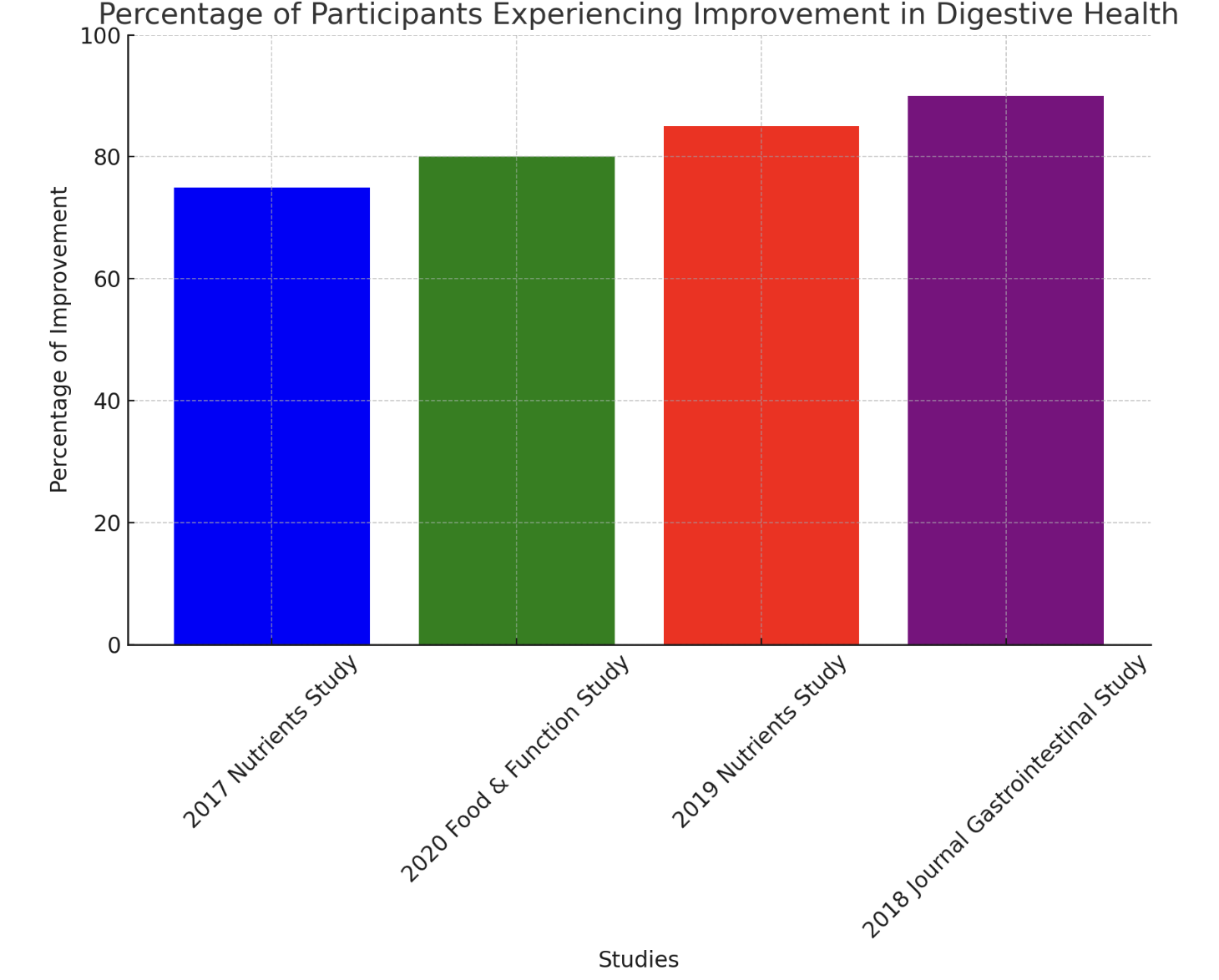Dealing with irregular bowel movements? You’re not alone.
Many people struggle with constipation, diarrhea, or other digestive issues that can leave them feeling uncomfortable and frustrated.
While there are many potential solutions, one surprising option might be hiding in your fridge: beet juice.
That’s right; this brightly colored drink may do more than stain your lips and teeth. Beet juice is packed with fiber, nutrients, and compounds that can help keep things moving smoothly in your digestive tract.
In this blog post, we’ll examine the science behind beet juice and bowel movements and explore how incorporating this tasty drink into your diet may help you find relief and regularity.
Get ready to learn about the surprising benefits of this colorful vegetable juice!
An Overview: Beets and Beet Juice

Beets are root vegetables known for their vibrant red color and sweet, earthy flavor. They belong to the Chenopodiaceae family, which also includes spinach and chard.
Beets have been grown for thousands of years, with evidence of their cultivation dating back to ancient civilizations in the Mediterranean region.
In recent years, beets have gained attention as tasty additions to meals and valuable components in health-focused diets. Their unique nutritional profile and potential health benefits have made them popular among health-conscious individuals.
Nutritional Content in Beet Juice
| Nutrient | Amount per 100 grams | % of Recommended Daily Intake |
|---|---|---|
| Calories | 43 | – |
| Fat | 0 grams | – |
| Carbohydrates | 10 grams | – |
| Protein | 1 gram | – |
| Fiber | Less than 1 gram | – |
| Vitamin C | 4 mg | 4.5% |
| Folate | 20 mcg | 5% |
| Potassium | 148 mg | 3.1% |
| Magnesium | 14 mg | 3.5% |
| Iron | 0.4 mg | 2% |
| Nitrates | Variable | – |
- Calories and Carbohydrates might vary slightly depending on specific preparation methods and the variety of beets used.
- Nitrates, beneficial for blood pressure regulation, are significant in beet juice but do not have a daily recommended intake and vary greatly.
- Fiber content is much reduced in juice form because the fiber is mostly contained in the pulp removed during juicing.
Historical and Traditional Use of Beets

Beets have a rich history dating back to ancient times. They were cultivated by ancient civilizations such as the Greeks and Romans, who valued them for culinary and medicinal purposes.
Beets were used to treat various ailments in ancient Rome, including digestive and blood disorders.
Beets have been used in traditional medicine systems around the world throughout history. In traditional Chinese medicine, beets were believed to have cooling properties and were used to treat heat-related conditions and support liver health. In Ayurvedic medicine, beets promote digestion and cleanse the liver.
Many natural health practitioners recommend beet juice as a gentle way to support liver function and promote healthy digestion. The combination of fiber, nutrients, and bioactive compounds in beets is thought to contribute to their beneficial effects on the digestive system.
The Role of Fiber in Digestion
| Feature | Soluble Fiber | Insoluble Fiber |
|---|---|---|
| Definition | Fiber dissolves in water to form a gel-like substance. | Fiber that does not dissolve in water. |
| Sources | Oats, apples, oranges, carrots, barley, psyllium, legumes, nuts, and seeds. | Whole wheat, whole grains, wheat bran, corn bran, seeds, nuts, barley, couscous, brown rice, zucchini, celery, broccoli, cabbage, onions, tomatoes, carrots, cucumbers, green beans, dark leafy vegetables, raisins, grapes, fruit, and root vegetable skins. |
| Function in Digestion | It slows down digestion, which helps control blood sugar and lowers cholesterol. | It adds bulk to the stool and helps food pass more quickly through the stomach and intestines, reducing the chance of constipation. |
| Impact on Gut Health | It feeds beneficial gut bacteria, improves gut health, and potentially reduces the risk of colon cancer. | It helps with gut peristalsis and can reduce the risk of diverticular disease. |
1. General Importance of Dietary Fiber
Dietary fiber is the indigestible part of plant foods that plays a crucial role in the digestive system.
It is essential for maintaining gut health and regular bowel movements. Fiber helps move food through the digestive tract, promotes the growth of beneficial gut bacteria, and helps prevent digestive disorders.
Dietary fiber’s health benefits extend beyond digestive health.
Regular fiber intake can help prevent constipation, reduce the risk of diverticulitis and irritable bowel syndrome, lower cholesterol levels, and manage blood sugar levels.
Fiber also promotes feelings of fullness, which can aid in weight management.
2. Fiber’s Mechanism in Digestive Health
As fiber travels through the digestive system, it remains largely undigested. It adds bulk to the stool, making it softer and easier to pass. This helps prevent constipation and promotes regular bowel movements.
Soluble fiber, in particular, absorbs water and forms a gel-like substance that softens the stool.
3. Fiber Content in Beets
Beets are a good source of dietary fiber. One cup (136 grams) of raw beets contains about 3.8 grams of fiber, roughly 15% of the recommended daily intake. This is comparable to other fiber-rich vegetables like broccoli and Brussels sprouts.
4. Direct Benefits of Beet Fiber for Bowel Movements
The fiber in beets directly contributes to regular bowel movements by adding bulk and softness to the stool. This makes it easier to pass and helps prevent constipation. The insoluble fiber in beets also helps speed up waste movement through the digestive tract.
To maximize the fiber benefits of beets, it’s best to consume them whole rather than in juice form. Chopping or grating raw beets into salads, roasting them as a side dish, or adding them to smoothies are all great ways to incorporate more beet fiber into your diet.
Specific Effects of Beet Juice on Bowel Movements

1. Direct Impact on Bowel Movements
- It contains less fiber than whole beets but includes some residual fiber that aids digestion.
- It contains nitrates that promote smooth muscle function in the gut.
- Nitrates convert into nitric oxide, which relaxes and dilates blood vessels, improves blood flow, supports digestive tract muscles, and reduces the risk of constipation.
2. Potential Side Effects
- Possible side effects include bloating, gas, or diarrhea, often due to the concentrated sugars in beet juice and increased natural stool volume.
- The likelihood of side effects may be influenced by the amount of juice consumed, individual digestive sensitivities, and existing dietary habits. People new to high-fiber diets or with sensitive digestive systems may experience more pronounced side effects.
3. Recommendations and Precautions
- Consume beet juice in moderation to minimize potential side effects.
- Gradually increase intake to allow the digestive system to adapt.
- Consult with a healthcare provider before adding beet juice to your routine if you have digestive issues like irritable bowel syndrome or inflammatory bowel disease or are on a specific diet to receive personalized advice.
Scientific Evidence and Studies

1. Research Specific to Digestive Health
Beet juice contains several nutrients that contribute to digestive health, including fiber, nitrates, and vitamins.
Although the fiber content is reduced in juice form compared to whole beets, the remaining soluble fibers and other compounds still offer digestive benefits.
Research has shown that the nitrates in beet juice can improve blood flow and oxygenation to the digestive tract, supporting smooth muscle function and promoting regular bowel movements.
A 2017 study published in Nutrients found that beetroot supplementation improved constipation symptoms and overall digestive health in healthy adults.
2. Case Studies and Clinical Trials
- A 2020 study published in Food & Function investigated the impact of beetroot juice on gut microbiota and digestive health. The researchers found that the juice positively influenced the growth of beneficial gut bacteria and improved markers of digestive function.
- One notable clinical trial, published in the journal Nutrients in 2019, investigated the effects of beetroot juice on digestive symptoms in patients with irritable bowel syndrome (IBS). The study involved 40 randomly assigned participants who were to consume either beetroot juice or a placebo for four weeks. The results showed that the beetroot juice group experienced significant improvements in IBS symptoms, including reduced abdominal pain, bloating, and constipation, compared to the placebo group.
- Another case study, published in the Journal of Gastrointestinal and Liver Diseases in 2018, reported on a patient with chronic constipation who experienced significant relief after incorporating beetroot juice into their diet. The patient, a 45-year-old woman, had suffered from constipation for over a decade and had tried various treatments without success. After drinking 250 ml of beetroot juice daily for two weeks, she reported improved bowel movements, reduced straining, and a decrease in the use of laxatives.
Beeturia- The Reason Why Beetroot Juice Turns Poop and Pee Red
| Section | Description |
|---|---|
| What is Beeturia? | Beeturia is reddening urine or stool after consuming beets or beet juice. It affects 10-14% of the population and varies due to genetic factors that affect how pigments in beets are metabolized. |
| Biochemical Explanation | Beeturia involves pigments called betalains, which include betacyanins (red-violet) and betaxanthins (yellow-orange). Normally, these pigments change during metabolism, becoming less visible in waste. However, they may remain intact due to various factors, such as coloring the urine and stool red. |
| Factors Affecting Beeturia | Genetic factors: Variants in enzymes like glutathione S-transferase can increase susceptibility to beeturia. Other factors: Stomach acidity and the digestive transit time also influence the likelihood of beeturia, with lower acidity and faster transit times leading to more visible pigments. |
Comparison with Other Fiber Sources
| Fiber Source | Fiber Content Per 100 grams | Notes |
|---|---|---|
| Beet Juice | Less than 1 gram | Fiber content is significantly reduced due to the juicing process. |
| Prunes | Approximately 7 grams | Prunes are known for their high fiber content, which effectively relieves constipation. |
| Psyllium Husk | Approximately 70 grams | Extremely high fiber content; commonly used as a bulk-forming laxative. |
| Apples | Approximately 2.4 grams | It includes soluble and insoluble fiber, benefiting heart health and digestion. |
| Oats | Approximately 10 grams | It is high in beta-glucan, a soluble fiber that helps lower cholesterol levels. |
Recommendations for Consumption

1. Guidelines for Daily Intake
When incorporating beet juice into your diet for its digestive benefits, it’s important to start slowly and listen to your body. A general recommendation is to begin with a small serving, such as 4 ounces (120 ml), once daily. This allows your digestive system to adapt to the increased fiber and nutrient content.
If you tolerate this initial serving well, you can gradually increase your intake to 8 ounces (240 ml) daily. Some studies have shown benefits with daily consumption of up to 16 ounces (480 ml) of beet juice. However, paying attention to how your body responds and adjusting your intake accordingly is crucial.
Consuming beet juice earlier in the day is also good, as the nitrates can provide a natural energy boost. Drinking beet juice with or after a meal can help minimize any potential digestive discomfort, such as bloating or gas.
2. Precautionary Advice
While beet juice is generally safe for most people, certain individuals should exercise caution or consult a healthcare provider before adding it to their diet.
- People with a history of kidney stones may need to limit their intake of beet juice, as beets are high in oxalates, which can contribute to the formation of calcium oxalate stones. If you have had kidney stones in the past, it’s best to speak with your doctor before consuming beet juice regularly.
- Individuals with conditions that require potassium or sugar restriction should also be mindful of their beet juice intake. Beets are naturally high in potassium, which can be problematic for those with impaired kidney function or certain heart conditions. The natural sugars in beet juice can also affect blood sugar levels, so people with diabetes should monitor their intake and blood glucose closely.
- Additionally, if you are pregnant, nursing, or taking any medications, it’s always advisable to consult with a healthcare professional before making significant changes to your diet, including adding beet juice.
Remember that while beet juice can offer numerous health benefits, it should be part of a balanced diet and not relied upon as a sole source of nutrition. If you experience any persistent digestive issues or adverse reactions after consuming beet juice, discontinue use and consult with a healthcare provider to determine the underlying cause and appropriate course of action.
Summing Up
Beet juice can be a valuable addition to your diet to promote regular bowel movements and overall digestive health.
Its unique combination of fiber, nutrients, and bioactive compounds supports gut function and prevents common issues like constipation.
While more research is needed, existing studies suggest that consuming moderate amounts of beet juice daily can significantly improve bowel regularity and digestive comfort.
As with any dietary change, it’s important to listen to your body and consult a healthcare provider if you have any concerns or underlying health conditions.
By incorporating beet juice mindfully into a balanced diet, you may discover a delicious and natural way to keep your digestive system running smoothly.
So, why not give this vibrant, nutrient-packed beverage a try?
Frequently Asked Questions
Why is My Poop Black After Drinking Beet Juice?
Beet juice can turn your poop dark red or black due to its pigments, which may resemble blood but is usually harmless.
How Long Does It Take to Poop Out Beet Juice?
Beet juice typically takes 12-24 hours to pass through your digestive system and affects the color of your stool.
Does Beet Juice Clean You Out?
Beet juice can help promote digestion and regularity due to its fiber content, but it is not a comprehensive cleansing solution.
What Organs is Beet Juice Good For?
Beet juice is particularly beneficial for the liver, as it helps support detoxification processes. It also promotes heart and digestive health.






